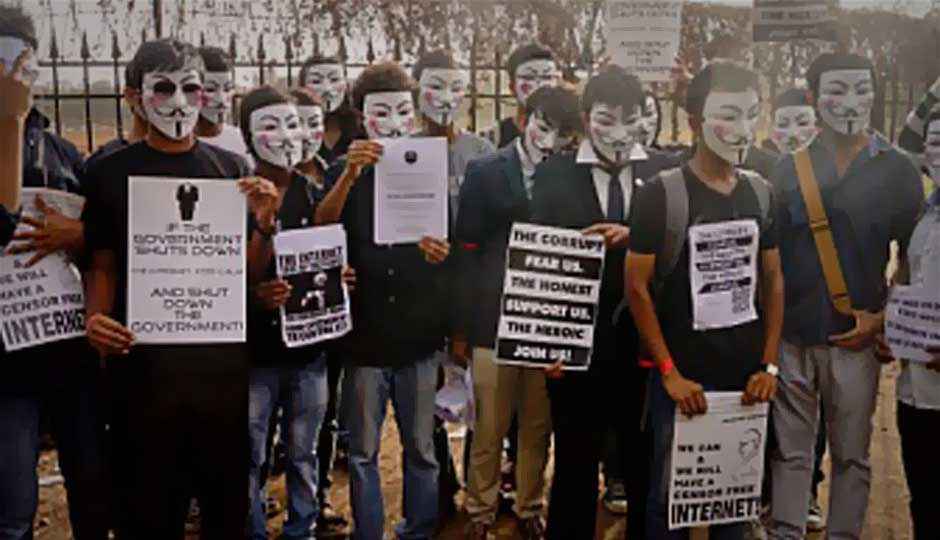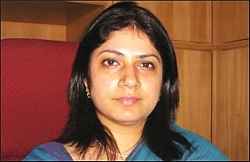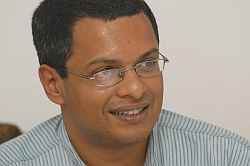Respite from Internet Censorship?

Of late, a lot of the blocked websites have started reappearing. So should we sit back and relax? We take a look at how it’s not really the start of something beautiful…
In April, Chennai based Copyrights Labs got a John Doe order (An order against no one in particular) from Madras High Court which ordered ISPs to block several video hosting websites such as Vimeo and Dailymotion along with a string of torrent sites such as Isohunt and Pirate Bay. The motive was to prevent illegal sharing of the movies 3 and Dhammu. The ISPs went on this whole website blocking spree welcoming users with messages such as, “This website has been blocked as per instructions from the Department of Telecom (DoT)”.
In June, the Madras High Court issued an order which made it mandatory for complainants to provide exact URLs where they find illegal content, such that ISPs could block only that content and not the entire site.
This order is definitely a relief for Indian internet users, who were facing a variety of blocked websites for a couple of months. In the May-June period there was a lot of media coverage around Internet censorship and then there was the much-hyped Anonymous protest (http://goo.gl/YCQod) that saw a not-so-great participation. Just like most media stories, it is slowly departing from the public conciousness. So does this mean our censorship woes are behind us?
Far from it.
The dark cloud of Intermediaries Guidelines
The Information Technology (Intermediaries Guidelines) Rules 2011 were added to the IT Act 2000. According to it, the intermediaries (website, domain registrar, blog owner and so on) guidelines allows the government to pull up any website that hosts “objectionable” content. It gives anyone the right to send “content removal notice” to an intermediary, asking it to be removed within 36 hours. Terms describing such content – grossly harmful, harassing, blasphemous, defamatory, obscene – are those that are open to interpretation. So, Facebook can be hauled up for derogatory content or pages on its site. Hell, even if you own a blog and someone else posts a derogatory comment, you can be pulled up.
This is a rather smart move by the government to force self-censorship down our throats. Just try imagining – Every 60 seconds: on YouTube there are 48 hours worth of videos uploaded; WordPress users publish 347 blogs; Twitter users send over 100,000 tweets among others. (Source: http://goo.gl/U7qT8) How on earth is monitoring such a vast amount of data even possible?
|
Karnika Seth, Cyberlaw Expert
|
“Any content which is illegal can be blocked by ISP or on directions of a court.A person who uploads illegal content does not have a right to claim that it should not be blocked. But if harmless content is blocked arbitrarily by government or by an ISP, a person can approach the court for a direction that content should not be blocked from public access. No specific section in IT Act entitles a person to sue in such cases . However freedom of speech and expression is our fundamental right guaranteed under Art.19 of the Constitution of India and it is our constitutional right to seek legal redress for its protection by approaching the court.” |
Every site has internal checks and balances in the form of a ‘Report Abuse’ option, where users raise flags against content which they may find objectionable and the site takes a call. But with the intermediary rules, the content has to be removed within 36 hours. And here’s the kicker – the content can be removed without informing the owner or giving him or her a chance to defend. A political cartoon website cartoonsagainstcorruption.com was a victim of such rules. In March this year, Rajya Sabha MP, P. Rajeeve, had moved a motion calling for the annulment of the intermediaries rules sometime in April. This motion, as would be expected, was defeated by a voice vote.
“Any content which is illegal can be blocked by the ISP or on directions of a court. A person who uploads illegal content does not have a right to claim that it should not be blocked. But if harmless content is blocked arbitrarily by government or by an ISP, a person can approach the court for a direction that content should not be blocked from public access,” said cyberlaw expert Karnika Seth. When asked if there is a clause in the IT Act which enables a person to drag the government or the ISP for blocking access to their harmless content on the web, Seth said, “No specific section in the IT Act entitles a person to sue in such cases . However, freedom of speech and expression is our fundamental right guaranteed under Art.19 of the Constitution of India and it is our constitutional right to seek legal redress for its protection by approaching the court.”
So what should one do if his or her content is blocked due to the blanket ban on websites? “If I am blocked access to my content on the web (say by blocking sites such as Vimeo or Blogspot for instance) I should file an appeal against the John Doe order in the higher court or to the division bench of High court if earlier order has been passed by single bench of the same High court. These provisions are there for any citizen in Procedural Law of India. The IT Act, 2000 need not be invoked,” says Advocate Prashant Mali, President, Cyber Law Consulting.
Google Transparency report clearly established a link between internet censorship and the government. According to the report, between January and June 2011 Google received 1739 requests for disclosure of user data from the Indian government whereas from July to December 2011, the number of requests by the government went up to 2207. Thankfully Google’s compliance rate has come down, but the requests will keep increasing. And this is just Google products we are talking about. Is it then right for just the government to go ahead and draft the rules regarding internet usage? Are there provisions for you, the user to play a part in drafting of these rules. According to Advocate Mali, laws are generally put up for debate on various Government websites. But in the case of the Intermediaries Guidelines, the government used the two-thirds majority to pass the rules.
According to Sunil Abraham, Director, Centre for Internet and Society – a Bangalore-based internet advocacy group, we are very far in terms of Internet policies. “Dr. Gulshan Rai of CERT-IN has not taken even the public feedback process seriously and does not hold public consultations. This is very unlike TRAI, the telecoms regulator that has a very sophisticated approach towards transparent and participatory policy formulation.” He says that in India there is little transparency in some areas of policy articulation and our representatives do not seem sufficiently interested in protecting the public interest.
Also according to Adv. Mali, the recent Madras High Court directive asking the ISPs to block only the ‘pirated content’ and not the entire website, is just half the battle won for the ISPs. “If ISP’s feel they have won, then that’s just half the victory, because if they don’t implement the order with full might and even if one copyright gets infringed because of there weak enforcement, then it would amount to Contempt of Court which will land ISP’s into soup,” he says.
|
“The Madras High Court judgement which essentially directs ISPs to block “pirated content”, and not the website as a whole, is a good judgment with respect to Internet users, but implementing it selectively would be a mammoth task for ISP’s. If ISP’s feel they have won, then it’s just half the battle won, because if they don’t implement the order with full might and even if one copyright gets infringed because of weak enforcement, then it would amount to Contempt of Court which will land ISP’s into soup.” |
.jpg)
Advocate Prashant Mali, President, Cyber Law Consulting
|
Is the Anonymous way, the right way?
In June, we saw the global hactivist organisation – Anonymous attacking a string of Government websites and that of ISPs such as Reliance communications, which had blocked access to websites. On June 9, there was a street protest across various metros in India. While the participation was not very encouraging, the sympathy for what Anonymous hackers were doing to those opposing Internet censorship was immense.
According to Advocate Mali, though the agenda of Anonymous was good, their means of achieving that end were wrong. “One cannot put a gun on the Government’s head in a democracy. If they keep doing this, they will be outlawed. If Anonymous really wants to work for the netizens, they should find better ways to protest instead of those which are cognizable cyber crimes in India.” said Mali.
According to Abraham, Anonymous are embracing the civil disobedience movement to protest against unjust laws. He feels that it is pertinent for Anonymous to retain the moral high ground. “Breaking into servers, leaks of personal information and defacement of websites is both illegal and also unlikely to win them more supporters from within the policy formulation space,” concurs Abraham.
|
Sunil Abraham, Director, Centre for Internet and Society
|
“The government ie. the government in power, does only frame subsidiary rules. For example – the draconian rules related to reasonable security measures, cyber cafes and intermediaries were drafted in April last year. The main Act in this case the Information Technology Act is framed in the Lok Sabha and Rajya Sabha. Even though the elected government may dominate the proceedings, if they have a clear majority, the opposition parties must debate every detail especially in laws that affect our civil liberties. Unfortunately, since the Internet is not used by the majority of the population it is politically still an insignificant issue. The private sector cannot frame laws that regulate itself – that would be a contradiction in terms. Citizens cannot be asked to vote in referendums each time laws have to be passed, that would just be too slow. Transparency representative democracy is the online option – unfortunately in India there is little transparency in some areas of policy articulation and our representatives don’t seem to be sufficiently interested in protecting the public interest.” |
Where do we go from here?
So it is safe to say that even though the issue of censorship is not making headlines everyday, it will never will be behind us. “This is just a temporary lull in the storm. Governments are always keen to crack down on free speech and privacy online,” feels Abraham. According to him, projects such as Unique Identification (UID) and National Intelligence Grid (NATGRID) means the death of anonymity and pseudonymity for Internet and mobile users in the country.
On the other hand, Adv. Mali says that so long as the Intermediaries guidelines are part of the IT Act, it will only mean bad news for regular netizens. “Till the rules are effective, censorship and blocking would be a weapon in the hands of the Government, even though it may violate certain Fundamental Rights enshrined by Indian Constitution to Indian Citizens,” he said.
“Indian Internet users have to be very vigilant – if not, we will loose all our rights and freedoms one by one,” warns Abraham.
We can just hope that the issue does not get completely out of hand.


